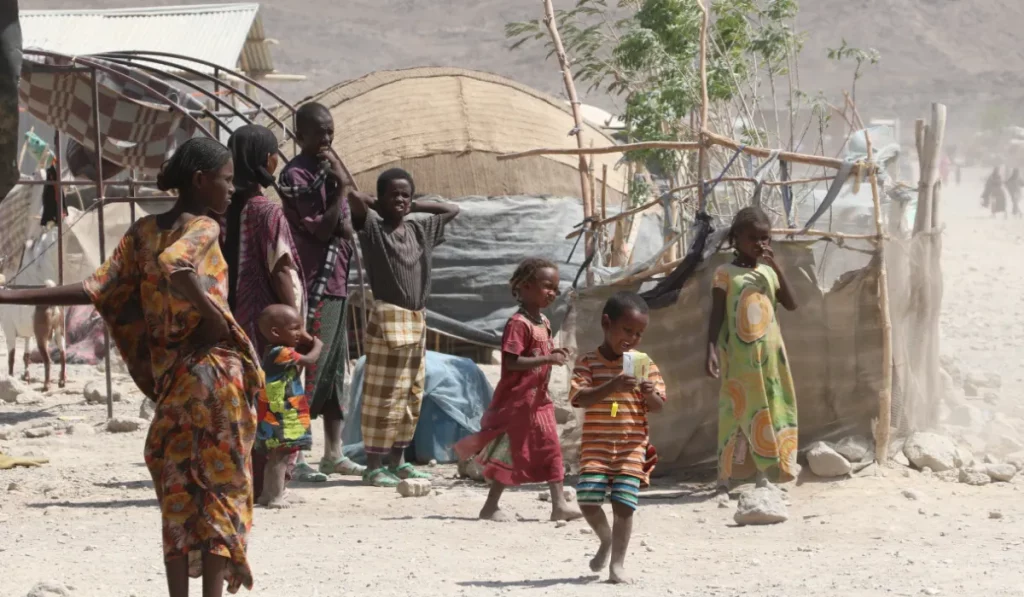
Conflict & Resilience Monitor – 30 June 2024
We begin this month’s Monitor with an article from Tom Wuchte and Rehema Zaid who write about the nexus between terrorism and climate change on the African continent. The article

We begin this month’s Monitor with an article from Tom Wuchte and Rehema Zaid who write about the nexus between terrorism and climate change on the African continent. The article
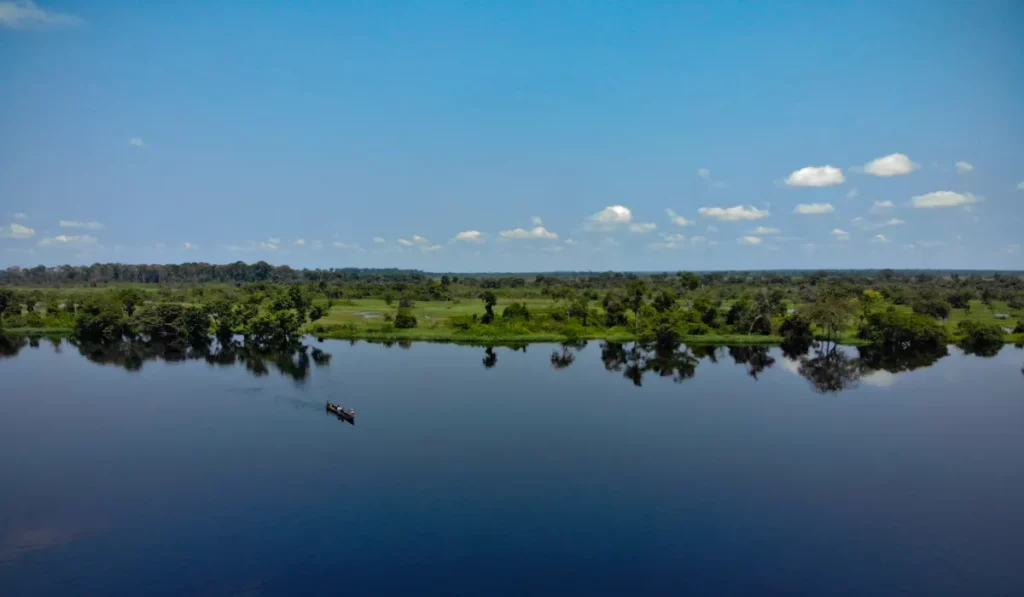
This article delves into the nuanced landscape of transboundary water governance, with a keen focus on the regulatory measures implemented in the Lake Chad and Congo Basins.
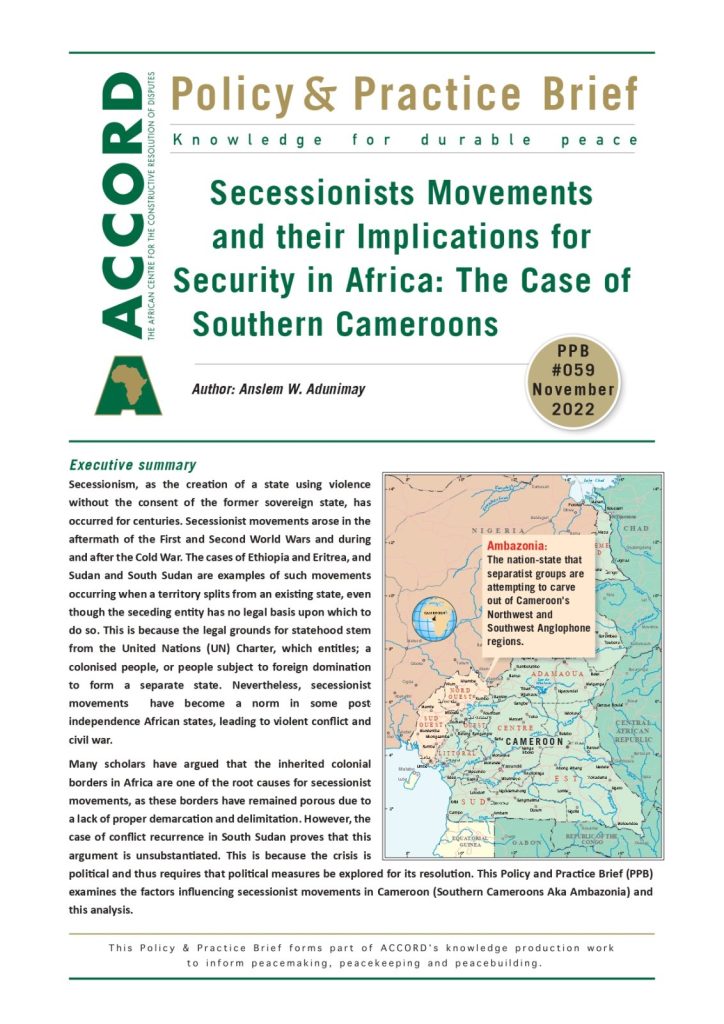
Secessionist movements have become a norm in some post-independence African states, leading to violent conflict and civil war. This PPB examines the factors influencing secessionist movements in Cameroon.
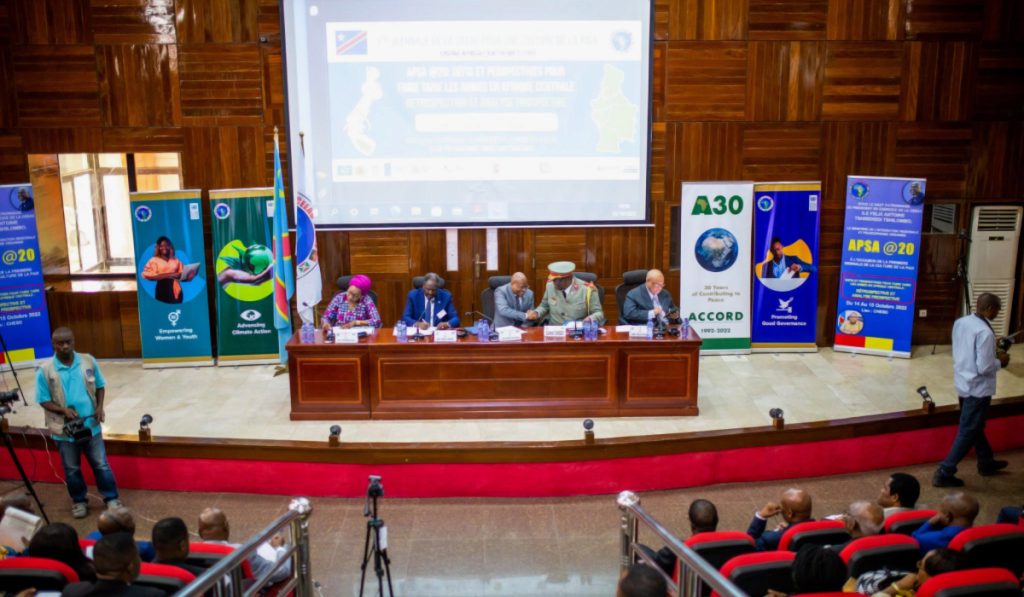
APSA at 20: Challenges and Prospects for Silencing the Guns in Central Africa: Looking back, Looking forward
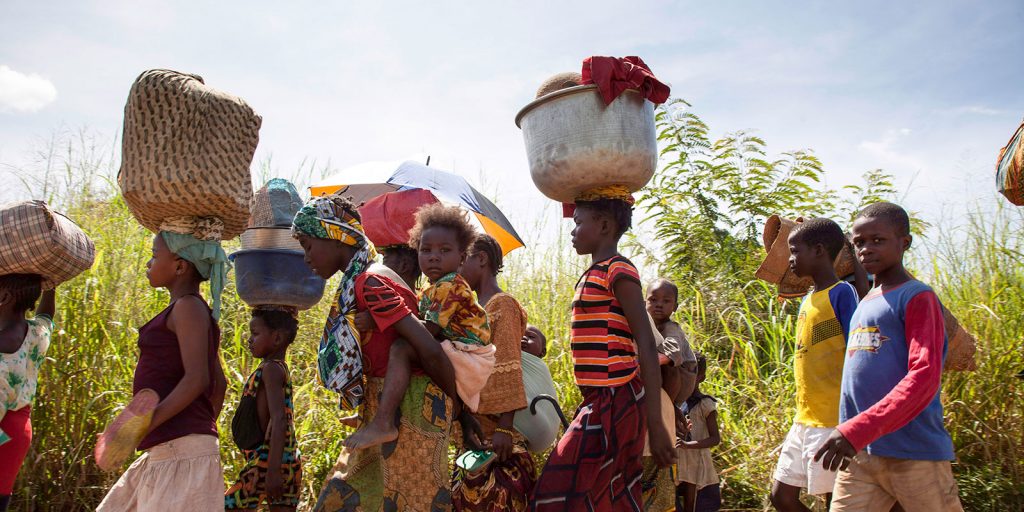
ECCAS Member States are committed to the shared values of the AU, whose legal instruments relating to refugees and IDPs form an integral part of the body.
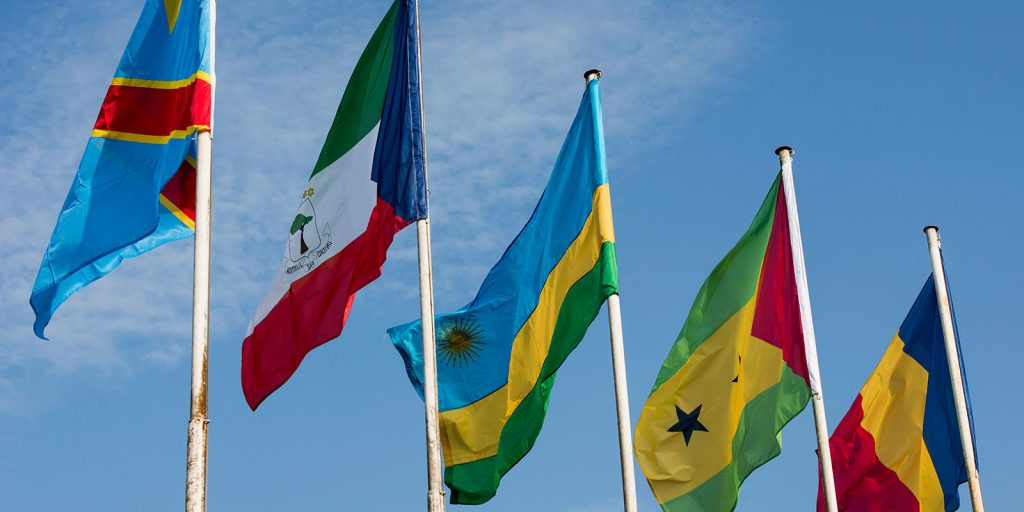
Formal regional integration exercises aim to play a leading role in reversing the process of marginalisation of the economies of the ECCAS zone.
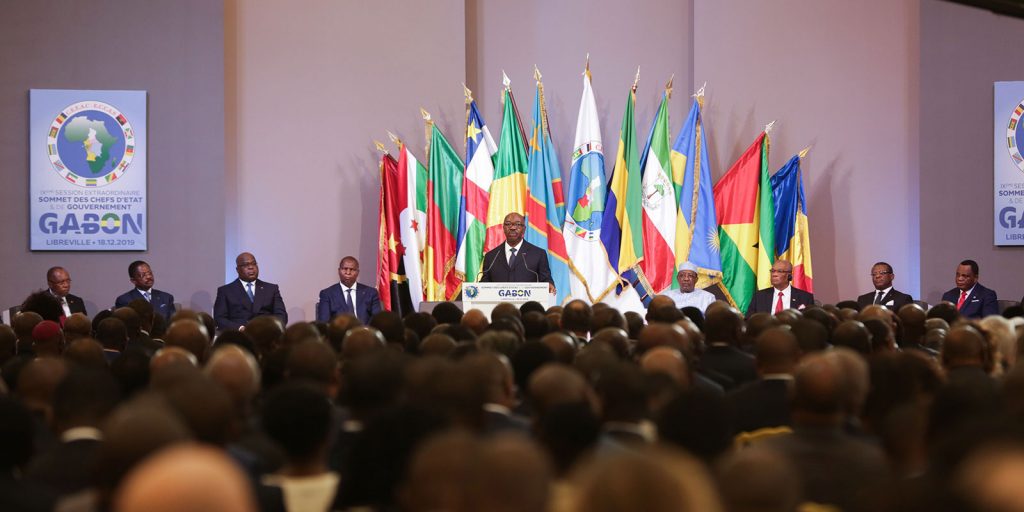
The construction of the community of destiny passes by the emergence and the formatting of a community citizenship which does not go without strong moments of awareness. The day of regional integration is given to us to revive, stimulate and develop this awareness of our belonging and community destiny within the Community that forms the eleven Member States of ECCAS.
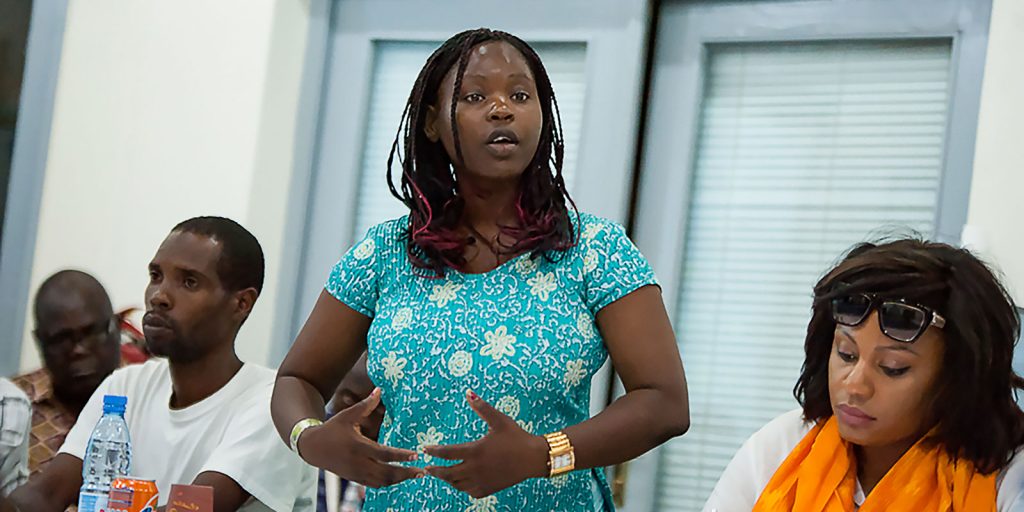
The Economic Community of Central African States (ECCAS) has decided to establish a Corps of Young Volunteers dedicated to work towards regional integration and development.
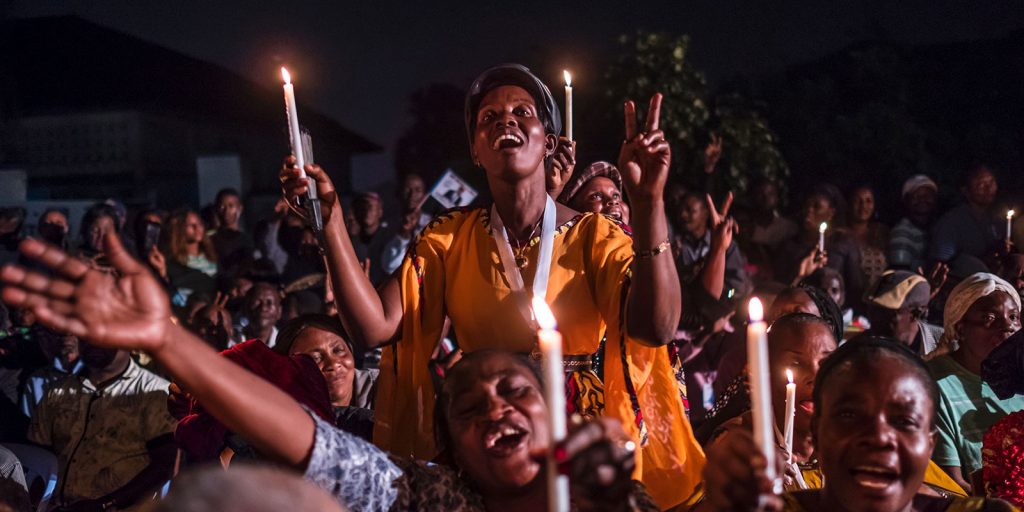
ECCAS has launched a competition for finding an anthem and a motto for the Commission. This will help to finalise the reform of ECCAS which is aimed at the acceleration of the integrating agenda based on clearly identified shared values, around unifying regional symbols.
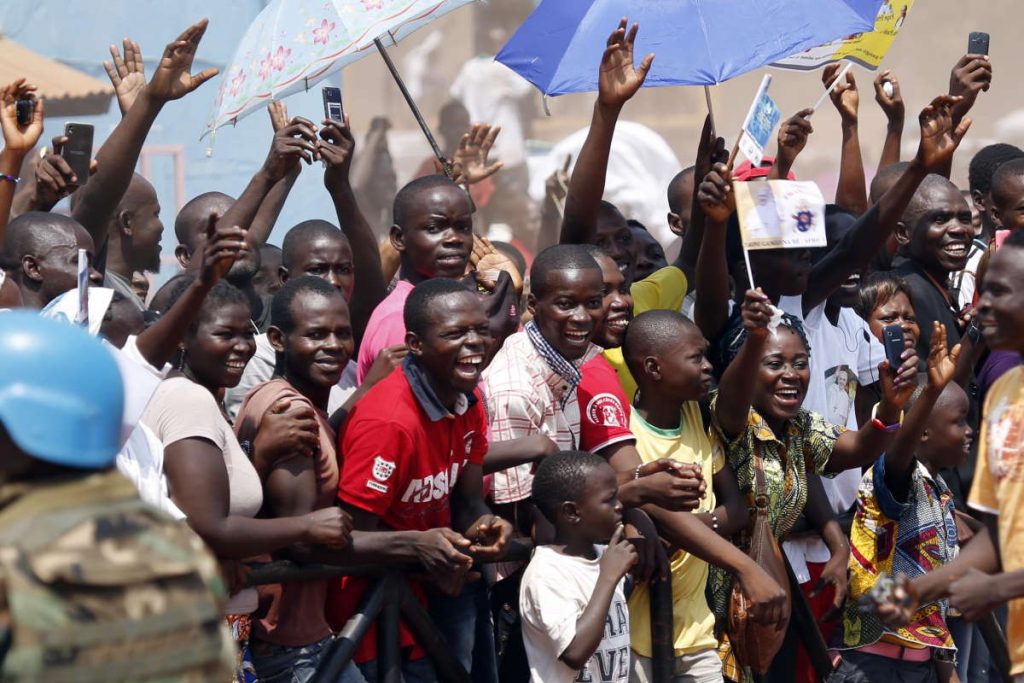
The IGD identified the key roles and activities that Central African youth can play to advance the STG agenda; as well as the challenges and gaps that hinder the effective participation and contributions of the youth to silencing the guns.